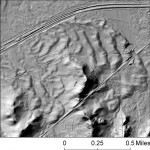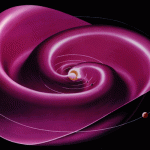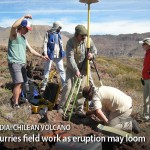Tag College of Letters & Science
The sun also flips: 11-year solar cycle wimpy, but peaking
In a 3-meter diameter hollow aluminum sphere, Cary Forest, a University of Wisconsin–Madison physics professor, is stirring and heating plasmas to 500,000 degrees Fahrenheit to experimentally mimic the magnetic field-inducing cosmic dynamos at the heart of planets, stars and other celestial bodies.
Standing up to Socrates: Philosophy major invites more women to the table
When Macy Salzberger joined the Socratic Society, an undergraduate club for University of Wisconsin–Madison students interested in discussing philosophy, she was hoping to find like-minded friends eager to engage with her on complex topics: contemporary ethics, the nature of consciousness, and more. What she found, instead, was a fierce style of argument—and hardly any women.
Exploring a volcano: The romance and the reality
A UW–Madison team endures hardship in the field, where a deceptively calm volcanic site could be spewing lava within weeks.
Scholz named dean of College of Letters & Science
John Karl Scholz, Nellie June Gray Professor of Economic Policy and chair of the Department of Economics at the University of Wisconsin–Madison, has been selected as the next dean of the College of Letters & Science, UW–Madison’s largest academic unit.
Thinking ‘big’ may not be best approach to saving large-river fish
Large-river specialist fishes - from giant species like paddlefish and blue catfish, to tiny crystal darters and silver chub - are in danger, but researchers say there is greater hope to save them if major tributaries identified in a University of Wisconsin–Madison study become a focus of conservation efforts.







